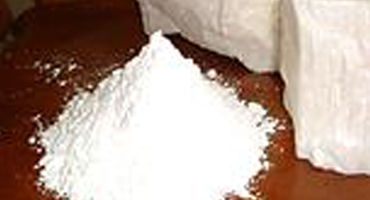PRODUCT DESCRIPTION
Global Processing L.L.C supplies Hydrated Magnesium Silicate (Talc) Fillers and Extenders ensuring best quality by tying up with the best known mines in the world for Talc.
Talc is the most extensively used extender in coatings of all types. It is a soft mineral with Moh's hardness of 1. It is inert and low cost. Talc
display easy wetting and disperse quite easily. Fine grades are stirred to the Hegman grind values of 6 or more. Talc’s display good anti-settling properties along with the rheological advantages. Global Processing L.L.C’s products are manufactured from high grade, low impurity and high whiteness natural Hydrated Magnesium Silicate and find application in the Paint & Coatings(Primers/Marine/traffic Paints/Undercoats/Anticorrosive), Paper, Powder Coating, Plastics (polypropylene compounding)/HDPE/LDPE/PVC/ABS and Thermosetting compounds, Appliance parts/under hood applications, Soap & Cosmetics, Personal care, Adhesive, Sealants, Ceramics, Rubber (for processing benefit/durability/ as anti-stick agent), Detergents, Dry fire extinguishing powder, Bleaching agent, Printing Ink, jointing compounds and putties.
Soda and Potassium Feldspar
Feldspar is the most common mineral in crystalline rock. The alkali and alumina content make it an interesting mineral.
The fusion point of a feldspar depends upon the alkalis present. It becomes lower with increasing soda content and decreasing potassium oxide content.
Hardness 6.0-6.5 Mohs. Property ranges for the major types of feldspar are: sp. gr. 2.56-2.63; M.P 1110-1532 Degree Centigrade, refractive index 1.524-1.584.
Feldspars are used as fluxing agents in ceramics and glass applications, and they also find application as functional fillers in the paint, plastic, rubber and adhesive industries.
Feldspar for Ceramics
Feldspars act as fluxing agents to form a glassy phase at low temperatures and a source of alkalis and alumina in glazes. They improve the strength, toughness, and durability of the ceramic body
Sodium, Potassium feldspar for Glass
Feldspar acts as a fluxing agent, reducing the melting temperature of Silica Sand or quartz and help to control the viscosity of glass. The alkali content in feldspar acts as flux, lowering the glass batch melting temperature and thus reducing production costs. Some feldspar fuse as low as cone 4, others as high as cone 10, but the average is cone 8-9.

